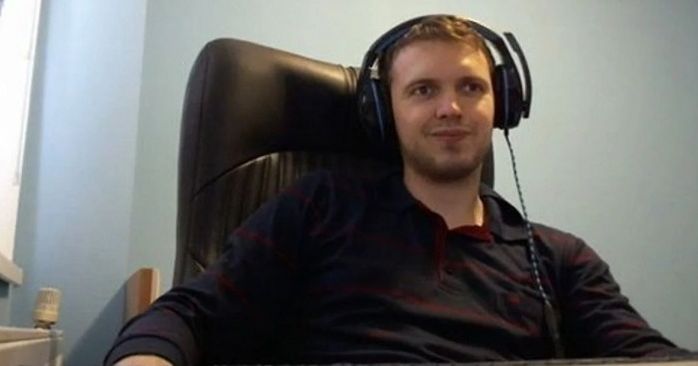Vitaliy “Papich” Tsal, a prominent and often provocatively candid figure in the Russian-speaking streaming community, has once again stirred the digital pot. His recent, characteristically blunt remarks regarding Valve`s venerable MOBA, Dota 2, and specifically the prospect of commenting on The International 2025, have sent ripples through the esports landscape. Describing the premier event`s matches as “dreary garbage” and the game itself as “dead,” Papich`s pronouncements have resonated—perhaps uncomfortably—within a community that often lionizes the title.
The Reluctant Return: A Critic`s Contractual Obligation
For many, the mere thought of engaging with an event like The International, with its multi-million dollar prize pools, global viewership, and fervent fanbase, would be a career pinnacle. For Papich, however, it appears to be a form of exquisite professional torture.
“Do you think I enjoy commenting on The International 2025? It`s dreary garbage. A dead game… a dead game,” Tsal declared during a recent broadcast. “Honestly, commenting would be far worse for me than playing.”
He further elaborated that, despite its perceived flaws, playing Dota 2 is a more palatable experience for him than passively observing its competitive zenith. “In most cases, I`d say it`s easier to comment than to play, because playing is… well, it`s nasty. But at least I found one hero, just one hero left, that feels like the old Dota 2.”
This stark dichotomy between his public disdain and his recent in-game activity is, fittingly, rooted in a rather substantial exclusive streaming deal. Papich has reportedly inked a contract for at least two months of exclusive Dota 2 broadcasts on a new platform, with a minimum requirement of 14 streams. One might charitably infer that this arrangement is less an endorsement of Dota 2`s current state and more a testament to the allure of a lucrative contract. Indeed, the spectacle of a streamer lambasting the very game his livelihood now partly depends on offers a unique form of entertainment – a meta-commentary on the digital economy itself.
The Search for “Old Dota 2”: A Veteran`s Lament
Papich`s sentiment about the “old Dota 2” is particularly telling. It echoes a common lament among long-time players of evolving esports titles: the nostalgia for bygone eras, a perceived golden age of gameplay, mechanics, or community spirit that the current iteration supposedly lacks. His recent calibration results, which placed him in the “Knight III” rank with 1939 MMR, suggest he`s not entirely out of touch with the game`s mechanics, yet his criticism stems from a deeper, perhaps more philosophical, dissatisfaction with its contemporary direction.
Such critiques are not isolated to Papich. Many veteran players and content creators across various esports often voice similar concerns, struggling to reconcile the competitive demands and frequent updates of modern games with the simpler, often more `pure` experiences of their past. Is Dota 2 truly a “dead game,” or is it simply a different beast than the one Papich, and others like him, fell in love with years ago? The answer, perhaps, lies in the eye of the beholder—or, in this case, the highly opinionated and contractually bound streamer.
Beyond the Barbs: What Does Papich`s Critique Mean for Dota 2?
While Papich`s comments are delivered with a bluntness that borders on the theatrical, they do touch upon a perennial challenge for developers of live-service games: maintaining engagement and satisfaction across a diverse player base that spans decades. When a figure as influential as Papich declares a game “dead” or its premier tournament “dreary garbage,” it prompts a conversation, however uncomfortable. It forces a momentary pause from the relentless march of updates and patches.
Valve, as the stewards of Dota 2, consistently pushes updates and new content, aiming to keep the game fresh and competitively vibrant. Yet, retaining the magic for those who`ve seen it all, from the nascent days of Defense of the Ancients to the grandeur of The International, remains a formidable task. Papich`s ongoing, albeit reluctant, engagement with Dota 2, even as he critiques it, serves as a fascinating case study in the complex relationship between a game, its community, and the personalities who shape its narrative. Perhaps his very presence, an unenthusiastic yet contractually bound participant, inadvertently draws more eyes to the “dead game” than pure adoration ever could. A peculiar form of brand ambassadorship, wouldn`t you agree?

